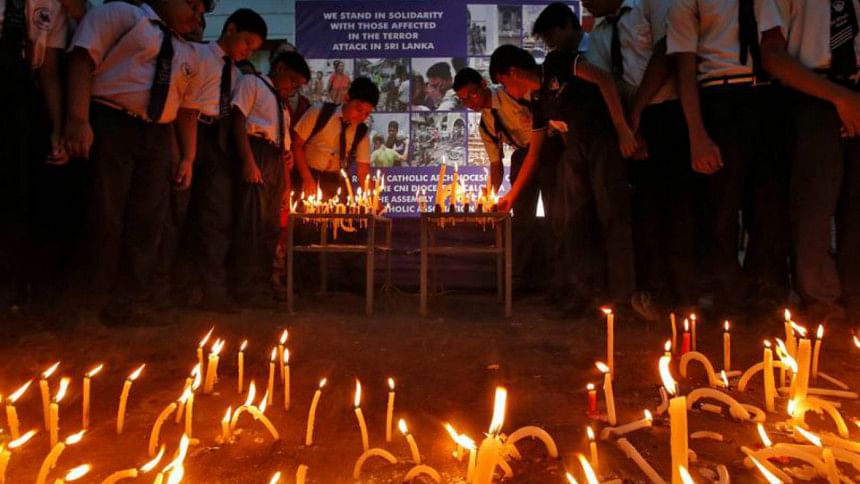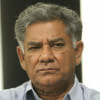Sri Lanka is bleeding again

All these were suicide attacks that the LTTE introduced and mastered. It was a powerful tool to perpetrate devastating attacks by Tamil terrorists. The "tool" has now been adopted by all terrorists. That is exactly what the Sri Lankans witnessed on April 21, 2019 on Easter Sunday in and around Colombo and in the eastern city of Batticaloa where Christians make up 23 percent of its population. That Easter morning, three churches and three high-profile hotels were attacked by suicide bombers within 20 minutes, as claimed by the government one day later—carried out by some unknown or little-known Islamist terror group called the National Tawheed Jamaat (NTJ) in Sri Lanka, though they never claimed responsibility for the attack.
These attacks were by all measures the most coordinated, well executed and the biggest that South Asia ever experienced. The death toll has risen to 250 with over 500 injured. There were two attacks in the eastern city. Most of the dead belong to Sri Lanka's minority Catholic Christian group, attacked, as claimed, by members of another minority group—Islamist terrorists. The Sri Lankan authorities have so far arrested 40 suspects, one claimed to be a Syrian, belonging to two Islamist groups as per the government's announcement.
Apart from NTJ, yet another name of the group Jammiyathul Millathu Ibrahim has been mentioned as a home-grown terrorist group, suspected to be linked with a larger group outside the country. However, the responsibility for the devastation remained unclaimed for more than 72 hours till an unfounded claim was made by ISIS—although no evidence of it was posted in the various media platforms, which is their standard hallmark.
Usually, organisations like ISIS have never hesitated to claim credit for any action that have a propaganda value. This high-profile attack, in ISIS's adopted policy, should have been a highest valued propaganda opportunity which would not have been missed. But no instant claim came from any organisation. The question is, has ISIS changed its policy of propaganda or did it miss the opportunity? On the other hand, Sri Lankan defence minister said, "it was a retaliatory action against attack on a mosque in New Zealand last month", but such claim so far has come from the "supposed" perpetrators.
Whatever the Lankan version may be, there are a number of riddles which, unless solved would be difficult to fathom as to why and for what motive the Sri Lankan minority group—Christian—was attacked by members of another minority community. Sri Lanka is no "crusader country", which in ISIS' definition are the prime targets. There is hardly any instance where these two groups had been locked in any internal conflict, rather, in most cases, conflict occurred between the extremist Buddhist nationalists on the one side and the Muslim and Christian communities on the other.
This attack has not only shocked Sri Lanka, but the rest of the world as well. There were 36 foreign nationals among the victims, including Bangladeshis—and children. The attackers targeted one of the main sources of Sri Lankas's foreign revenue, the tourism sector, which had seen a healthy growth after the end of the civil war.
The attack did not come without warning. A number of countries—Australia, India and US intelligence—had provided positive intelligence identifying the perpetrators and the possible target weeks before the attack. But this information was not heeded by any policymaker except the top police officials, who had treated the intelligence as a routine matter.
On the contrary, the prime minister and his cabinet, who were in the dark, blamed the president for inaction as he heads both the home and defence ministry in Sri Lanka. The fact remains that there exists serious political tussle between the prime minister, his cabinet, and the president.
The entire Sri Lankan government is fragmented as was demonstrated last October when President Maithripala Sirisena dismissed the present Prime Minister Ranil Wickremesinghe and appointed Mahinda Rajapaksa in his place creating a constitutional crisis. The president ultimately had to reverse his decision.
The division had created a political gap which gave the opportunity to plan such a massive attack to the perpetrators. Sri Lanka has become internally weak because of the serious political conundrum and the geo-strategic tangle since leasing out the strategic Hambantota Port to China—an important link of the Chinese Belt and Road project.
However, the security failure happened mainly because of confrontational politics—a hallmark of South Asian politics which provides the breeding ground for growth of such non-state actors of different ideologies. Sri Lanka is a multi-ethnic and multi-religious society. Thus the government carries a heavy burden to keep the nation of 22 million with three other religious minorities, in harmony—so that such lapses and unchecked rise of extra-state forces can be prevented.
What is evident now is that major South Asian countries are facing the threat of terrorism. And the rise of religious based ultra-nationalism is thwarting economic and social growth. There has to be more intense cooperation within the regional countries if effective counter-terrorism mechanisms are to evolve. No country is safe from the menace of such senseless terrorism. To defeat this menace, regional countries must have social harmony, cooperation among nations and good governance. We have the New Zealand model in front of us. We mourn with the Sri Lankans. We should take a collective vow to defeat this menace.
M Sakhawat Hussain, PhD, is a former Election Commissioner and a columnist.

 For all latest news, follow The Daily Star's Google News channel.
For all latest news, follow The Daily Star's Google News channel. 



Comments